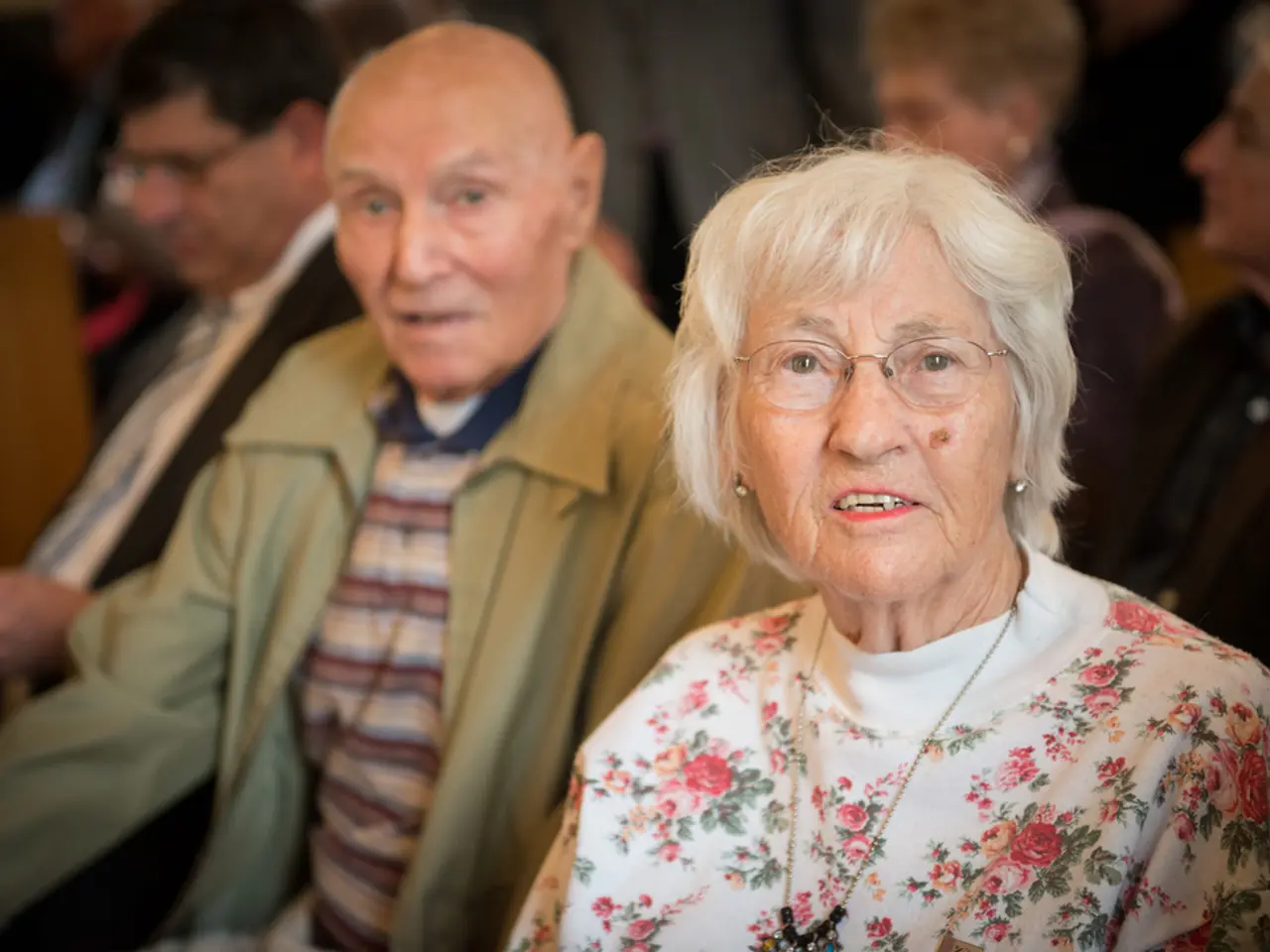Elderly Skin Pore Extraction: Causes and Remedies Explored
As we age, acne may seem like an unexpected skin concern. However, for many elderly people, acne remains a persistent issue due to various factors.
Causes of Acne in the Elderly
Acne in elderly people is primarily caused by a combination of factors such as hormonal changes, accumulation of dead skin cells, excessive sebum production, environmental factors, genetics, and possible fungal infections like Malassezia folliculitis.
Hormonal fluctuations related to menopause may worsen acne on areas like the neck, as androgen hormones stimulate sebaceous glands to produce more oil, leading to clogged pores. In some elderly individuals, fungal acne caused by yeast overgrowth (Malassezia) can mimic regular acne and is linked to factors like sweating, humidity, and weakened immunity, which may be more common with age or systemic conditions such as diabetes.
The Dangers of Pimple Popping in the Elderly
Pimple popping poses significant risks for elderly individuals. Squeezing pimples can push bacteria deeper into the skin, increasing the chance of infections, which may cause more redness, swelling, pus, and discomfort. Elderly skin is often thinner and more fragile, making it more prone to damage and resulting in prolonged or more severe scarring, including hyperpigmentation and keloid scars. Open wounds from popping are more vulnerable to irritants, leading to longer healing times, which can be especially concerning in older adults who may have slower skin repair processes.
Managing Acne Safely in Elderly Individuals
Given the risks associated with pimple popping, it is advised to avoid this practice and instead maintain good skin hygiene. Professional treatment is recommended to manage acne safely in elderly individuals. Treatments such as topical or oral antibiotics like minocycline can address inflammatory lesions, but should be used under medical supervision.
Dermatologists can offer a range of treatments to address acne in the elderly, including topical medications and oral prescriptions. If a woman in menopause has only a few pimples, no specific treatment may be necessary. However, if it's a more severe case, hormone levels should be checked, and basic health checks for conditions like diabetes and high blood pressure may be advised.
Maintaining Healthy Skincare Practices
Harsh chemicals and abrasive scrubs can exacerbate skin issues in elderly skin, making mild, fragrance-free cleansers and moisturizers important for skin health. Pimples can affect people of all ages, including the elderly, due to hormonal changes. Aging gracefully involves caring for our skin with patience and informed choices, avoiding the unnecessary pitfalls of pimple popping.
Triggers and Treatment
Identifying the triggers for acne, such as hormonal changes or certain skincare products, is crucial in understanding acne in the elderly. Other factors contributing to acne in older adults include thyroid troubles, high prolactin levels, insulin resistance, and lifestyle changes such as stress, bad diet, lack of sleep, and laziness.
Treatment for menopausal acne depends on its severity. Mild cases can be treated with creams and lotions, while birth control pills can help but are less effective after menopause. For severe cases, spironolactone, a medication that fights androgens, may be prescribed.
Conclusion
Adopting a gentle skincare routine and seeking professional guidance can lead to more sustainable solutions for acne in the elderly. Acne in adults, including the elderly, is not a random occurrence but is often linked to hormonal imbalances. Understanding the reasons behind acne and acknowledging the potential dangers of pimple popping are crucial steps in fostering healthier skincare practices.
- Hormonal fluctuations related to menopause can worsen acne for some elderly individuals, as androgen hormones stimulate sebaceous glands to produce more oil, leading to clogged pores.
- The risk of infections, prolonged or more severe scarring, and prolonged healing times make pimple popping a dangerous practice for elderly individuals, who often have thinner and more fragile skin.
- For safe and effective management of acne in elderly individuals, maintaining good skin hygiene and seeking professional treatment are recommended, as dermatologists can offer a range of treatments that address acne in the elderly.
- Identifying triggers for acne like hormonal changes, certain skincare products, or health conditions like thyroid troubles, high prolactin levels, insulin resistance, and lifestyle factors like stress, diet, and lack of sleep, is crucial for understanding acne in the elderly and selecting appropriate treatment options.




